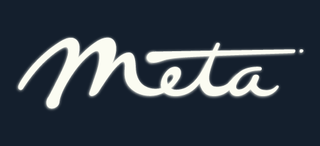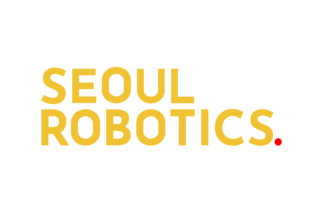
Valeo is a French global automotive supplier headquartered in France, listed on the Paris Stock Exchange. It supplies a wide range of products to automakers and the aftermarket. The Group employs 113,600 people in 29 countries worldwide. It has 186 production plants, 66 R&D centers and 15 distribution platforms. In 2018, Valeo's sales rose 4% to €19.1 billion. It frequently ranks as France's leading patent filer.

PrimeSense was an Israeli 3D sensing company based in Tel Aviv. PrimeSense had offices in Israel, North America, Japan, Singapore, Korea, China and Taiwan. PrimeSense was bought by Apple Inc. for $360 million on November 24, 2013.
Rightware is a pioneering Finnish software development company that provides automotive graphics software tools and services. Rightware is uniquely positioned with a strong foundation in gaming, graphics, and UI development, laser-focused on the automotive industry. Headquartered in Helsinki, Finland. Rightware has offices in Detroit, Tokyo, Seoul, Shanghai, Brighton, and Munich.

The Mali and Immortalis series of graphics processing units (GPUs) and multimedia processors are semiconductor intellectual property cores produced by Arm Holdings for licensing in various ASIC designs by Arm partners.

Leap Motion, Inc. was an American company that manufactured and marketed a computer hardware sensor device that supports hand and finger motions as input, analogous to a mouse, but requires no hand contact or touching. In 2016, the company released new software designed for hand tracking in virtual reality. The company was sold to the British company Ultrahaptics in 2019, which rebranded the two companies under the new name Ultraleap.

Mobileye Global Inc. is an Israeli autonomous driving company. It is developing self-driving technologies and advanced driver-assistance systems (ADAS) including cameras, computer chips, and software. Mobileye was acquired by Intel in 2017 and went public again in 2022.

Sketchfab is a 3D asset website used to publish, share, discover, buy and sell 3D, VR and AR content. It provides a viewer based on the WebGL and WebXR technologies that allows users to display 3D models on the web, to be viewed on any mobile browser, desktop browser or Virtual Reality headset.

zSpace is a technology firm based in San Jose, California that combines elements of virtual and augmented reality in a computer. zSpace mostly provides AR/VR technology to the education market. It allows teachers and learners to interact with simulated objects in virtual environments.

Meta was a company that designed augmented reality products. The company was founded by Meron Gribetz in 2012, based on the "Extramissive spatial imaging digital eye glass" technology invented by Gribetz and Mann originally filed with the US Patent and Trademark office Jan 3, 2013.

Windows Mixed Reality (WMR) is a discontinued platform by Microsoft which provides augmented reality and virtual reality experiences with compatible head-mounted displays.
uSens, Inc. is a Silicon Valley startup founded in 2014 in San Jose, California. The company builds interactive computer-vision tracking solutions. The uSens team has extensive experience in artificial intelligence (AI), computer vision, 3D Human–computer interaction (HCI) technology and augmented reality and virtual reality. uSens has been applying computer vision and AI technologies in AR/VR, Automotive and smartphones.
EON Reality is a multinational virtual reality and augmented reality software developer headquartered in Irvine, California. The company was founded by Dan Lejerskar, Mikael Jacobsson and Mats W. Johansson in 1999. Its clients include Boeing, Microsoft, Lexus and Cornell University.

Akeneo is a technology company that develops product information management (PIM) and product data intelligence software to improve customer experience. The company was founded in 2013 by Frédéric de Gombert, Benoit Jacquemont, Nicolas Dupont and Yoav Kutner. Akeneo is headquartered in Nantes, France and has offices in the United States, United Kingdom, Germany, Spain, Italy, Israel and Australia with more than 400 employees. It has worked with customers including Shop.com, Fossil, Midland Scientific, Air Liquide, Rexel, Babolat, LVMH and Auchan.
Parrot Faurecia Automotive SAS is a French tech company that designs, develops and markets infotainment products for passenger vehicles and commercial trucks.

WayRay was a start-up with offices in Switzerland, Russia, and China. It developed holographic AR technologies for connected cars.
Samsung Strategy and Innovation Center (SSIC) is a division of Samsung Electronics. It works with entrepreneurs and corporate partners to invest in disruptive technologies, such as artificial intelligence, digital health, mobility, the Internet of Things, and other consumer-facing applications of data-driven technology.

Vayyar Imaging Ltd. is an Israeli semiconductor company that produces 4D imaging radar sensors. Initially developed to provide a more effective means of screening for early-stage breast cancer, Vayyar’s Radar-on-Chip technology is now used in a number of other sectors, including automotive, senior care, retail, smart home and commercial property.

Typewise is a Swiss deep tech company that builds text prediction AI. In January 2022, the company filed a patent for its technology which it claims outperforms that of Google's and Apple's.

Seoul Robotics is a software company based in Seoul, South Korea. The company was founded in 2017 by HanBin Lee. Seoul Robotics creates 3D vision software for LiDAR and other sensing technologies. Its software is used for applications in fields such as autonomous vehicles, advanced driver assistance systems, smart manufacturing, construction, logistics, and smart cities. Notable partners of Seoul Robotics include BMW, Volvo, Mercedes-Benz, Mando, and Qualcomm.













